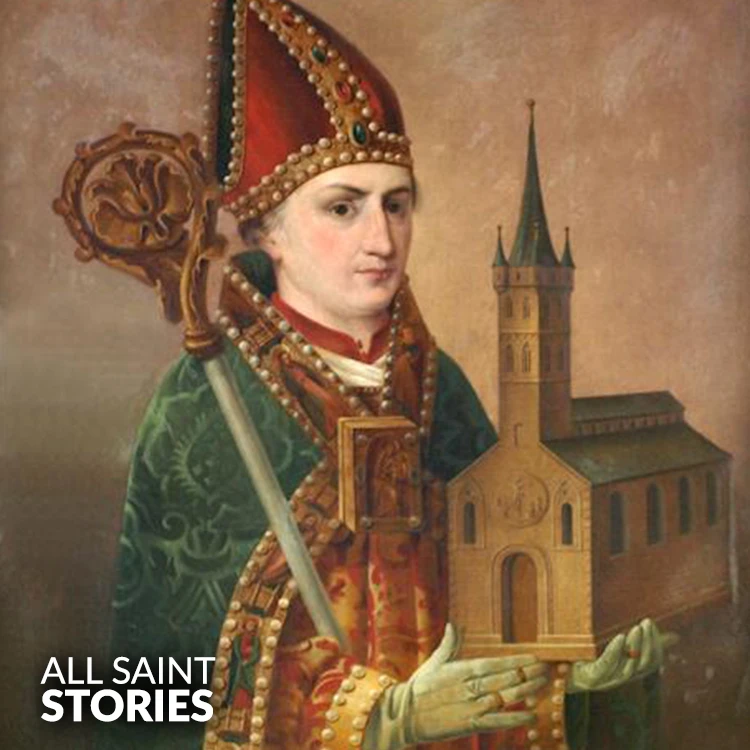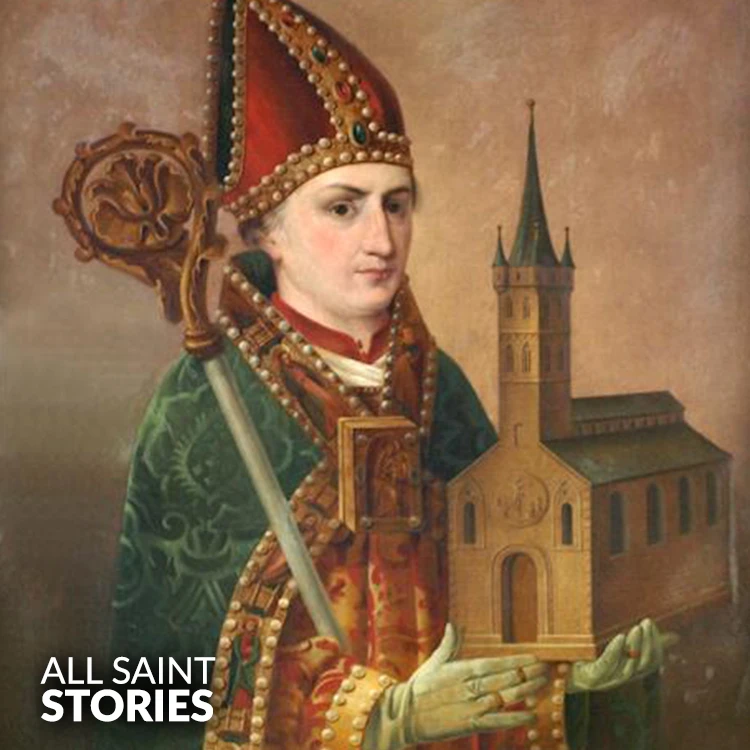"Saint Ansgar, faithful servant of God, you brought the light of Christ to the people of the North. Pray for us that we may have the courage and zeal to share God's love with others, and may our hearts always be open to His guidance. Through your intercession, may we be strengthened in faith and charity. Amen."
ST. ANSGAR
ST. ANSGAR

St. Ansgar, often known as the "Apostle of the North," was a missionary who played a vital role in spreading Christianity in Scandinavia during the 9th century. Born in France, Ansgar served as a bishop and devoted his life to preaching and evangelizing, particularly in Denmark and Sweden. His missionary work helped lay the foundation for Christianity in Scandinavia.
St. Ansgar was born in 801 in the region of Picardy, France. From a young age, he showed a deep interest in the Christian faith and was sent to a monastery in Corbie. His devotion and love for God led him to a life of service. After being ordained as a priest, Ansgar was chosen by Emperor Louis the Pious to become a missionary to the northern regions of Europe.
In 826, he was sent to Denmark, where the Christian faith had not yet taken root. His missionary work in Denmark was challenging, as he faced resistance from the local pagan populations, but he persevered with unwavering faith. In 831, Ansgar was appointed the first bishop of Hamburg, a city that became the center for the evangelization of the northern peoples.
His efforts were not confined to Denmark; St. Ansgar also made trips to Sweden, where he worked tirelessly to spread the Gospel. He built churches and established the first Christian community in Sweden, contributing significantly to the establishment of Christianity in the region. He was known for his deep compassion, humility, and perseverance, always focusing on the spiritual well-being of the people he served.
St. Ansgar’s work was crucial in the early missionary efforts in Scandinavia, and he is often referred to as the "Apostle of the North." Despite facing numerous challenges and setbacks, including being driven out of Denmark at one point, his dedication and commitment to spreading Christianity never wavered. His legacy is still celebrated today, particularly in Denmark and Sweden, where he is venerated as a key figure in the spread of the Christian faith.
St. Ansgar died in 865, and his feast day is celebrated on February 3. He was canonized in 1230, and his life and work continue to inspire missionaries and Christians worldwide. His example of missionary zeal, pastoral care, and commitment to spreading the Gospel remains an enduring model for all who seek to bring Christ's light to distant lands.
Video Not Found
The information on this website is compiled from various trusted sources. While we aim for accuracy, some details may be incomplete or contain discrepancies.
If you notice any errors or have additional information about this saint, please use the form on the left to share your suggestions. Your input helps us improve and maintain reliable content for everyone.
All submissions are reviewed carefully, and your personal details will remain confidential. Thank you for contributing to the accuracy and value of this resource.
Credits & Acknowledgments
- Anudina Visudhar (Malayalam) – Life of Saints for Everyday
by Msgr. Thomas Moothedan, M.A., D.D. - Saint Companions for Each Day
by A. J. M. Mausolfe & J. K. Mausolfe - US Catholic (Faith in Real Life) – Informational articles
- Wikipedia – General reference content and images
- Anastpaul.com – Saint images and reflections
- Pravachaka Sabdam (Malayalam) – Saint-related content and insights
We sincerely thank these authors and platforms for their valuable contributions. If we have unintentionally missed any attribution, please notify us, and we will make the correction promptly.
If you have any suggestion about ST. ANSGAR
Your suggestion will help improve the information about this saint. Your details will not be disclosed anywhere.
© 2026 Copyright @ www.allsaintstories.com





 English
English
 Italian
Italian
 French
French
 Spanish
Spanish
 Malayalam
Malayalam
 Russian
Russian
 Korean
Korean
 Sinhala
Sinhala
 Japanese
Japanese
 Arabic
Arabic
 Portuguese
Portuguese
 Bantu
Bantu
 Greek
Greek
 German
German
 Dutch
Dutch
 Filipino
Filipino